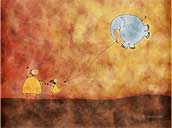Mental status

The cornerstone of working as a mental health professional is the ability to carry out an accurate and thorough biopsychological and spiritual assessment. The initial assessment is used to establish whether a person has a mental health problem or not, what the problem is, what is the most suitable treatment and if there are any concurrent social or health problems that may also need attention or treatment. Therefore assessment and diagnosis are critical in ongoing care delivery for people with a mental disorder.
In this topic we will be looking at basic assessment of an individual’s mental health status.
Mental status
![]() Learning Journal. Is there a difference between a mental health examination and a psychiatric history? If so what is the difference?
Learning Journal. Is there a difference between a mental health examination and a psychiatric history? If so what is the difference?
Mental health status examination (MSE)
A mental health status examination (MSE) is a procedure used to evaluate a persons mental and emotional functioning at the time of assessment. This is achieved by following a precise set of observations and specific questions during an interview with a mental health professional. Biopsychological assessment requires specific interviewing skills. Therefore a MSE involves a systematised approach to the interview, which elicits as much pertinent information as possible without subjecting the individuals to the distress of unnecessary repetition.
Classification of mental illness will be dealt with in more detail in future units. At this point we are concerned only with basic skills as they pertain to socio cultural risk factors, WHO principles and local legislation.
Reading
 Meadows G. and Singh B. (2001) Mental health in Australia. Collaborative Community Practice. Oxford University press Sydney Chapter 14, pp 216-247
Meadows G. and Singh B. (2001) Mental health in Australia. Collaborative Community Practice. Oxford University press Sydney Chapter 14, pp 216-247
This chapter gives an in-depth discussion on assessment skills. We recommend that you read this chapter carefully as it will be the cornerstone of your professional practice.
Reading
Wright L. (2005) Spirituality, suffering, and Illness. Ideas for Healing. F.A. Davis Company. Canada. Chapter 4. Pp.109 – 145.
This chapter explores health beliefs and values, which may affect health behaviours. Spirituality plays a major role in illness and needs to be taken into account when assessing a persons well being and belief systems.
Find out more by exploring the following:
Mental State Assessment (Powerpoint 118K)
This is a simple but helpful power point presentation, which may help you to acquire the habits of systematic interviewing.
Mental State Examination
Australian Academy of medicine and Surgery – Psychiatric Assessment in Remote Australia. This site takes you to an excellent discussion paper outlining the complexities of assessing mental status of Aboriginal people due to cultural beliefs, values and accepted behaviours. Each area of the MSE is discussed and suggestions are made at the end of the paper for assessing mental health status in the Aboriginal community setting. This paper will also be valuable for looking at cultural differences in the recognition and management of mental health disorders.
Discussion board
You are a designated mental health practitioner and you are carrying out a MSE on Carol (see vignette below). Her family who are worried about her recent tearfulness, inactivity, has brought her to the Community clinic and self-neglect and ongoing weight gain.
You will be making the decision as to whether Carol should be referred on for psychiatric examination and possible specialist treatment.
Use the knowledge you gained in topic 2.1 to inform your eventual decision.
CAROL’S STORY (adapted from Mabbett 1996)
Carol is a 33-year-old married woman who is morbidly obese. She is slightly dishevelled. She is cooperative with the interview and is an adequate historian. Her mood and affect are depressed and anxious. She becomes tearful during the interview. Her flow of thought is coherent but her thought content reveals feelings of low self-esteem as well as ‘voices’ that are self-demeaning. She admits to suicidal ideas but denies active plan or intent. Her orientation is good. She knows the current date, place and person. Fund of knowledge is adequate. Carol shows some insight and judgment regarding her need for help.
Questions:
- Carol is obese and there is some indication that her activity level has decreased. What conditions apart from mental disorder might you wish to investigate?
- Why is Carol’s appearance important in your assessment of her mental state?
- What characteristics of Carol’s speech might lead you to suspect a mental health problem?
- What 3 questions might you ask Carol to elicit her mood? How will your objective assessment of affect help you to assess mental state?
- What questions might you ask to find out whether Carol’s ‘voices’ are in fact hallucinations?
- What questions might you ask to find out whether Carol is experiencing any delusional thinking?
- Carol shows insight and judgment regarding her need for help. What will Carol’s ability to concentrate throughout the interview add to your understanding of her mental status?
- How will you assess Carol’s risk of suicide?
- What will be your decision about referring Carol for psychiatric examination?
- What interim care plan might be negotiated?
Post your findings to the discussion board; review other student’s answers and comment on each other’s findings.